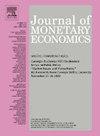财富冲击和投资组合选择
IF 4.3
2区 经济学
Q1 BUSINESS, FINANCE
引用次数: 0
摘要
我们利用新的欧元区消费者预期调查(CES)代表性数据,得出在正财富冲击下特定家庭的投资和消费倾向。通过随机分配 5,000 欧元至 50,000 欧元不等的假设彩票收益,以及消费、储蓄和资产选择的现实菜单,我们估算了财富冲击对风险资产所有权和条件资产份额的因果效应。财富冲击对持有股票有积极影响(最大的财富冲击会使参与率增加 8.4 到 12.8 个百分点)。即使财富大幅增加,大多数家庭也不参与股票市场。对于不超过 20,000 欧元的财富冲击,投资于风险资产的条件资产份额保持不变,而对于更大的财富冲击,投资于风险资产的条件资产份额略有上升(最多上升 2%)。我们的证据表明,大多数风险资产投资者的相对风险规避水平是不变的,同时我们也发现不同个体的风险规避水平存在很大差异。本文章由计算机程序翻译,如有差异,请以英文原文为准。
Wealth shocks and portfolio choice
We use new euro area representative data from the Consumer Expectations Survey (CES) to elicit household-specific propensities to invest and consume out of positive wealth shocks. Using a randomized assignment of hypothetical lottery gains ranging from €5,000 to €50,000 and a realistic menu of consumption, saving and asset choices, we estimate the causal effect of wealth shocks on risky asset ownership and conditional asset shares. Wealth shocks have a positive effect on stockholding (between 8.4 and 12.8 percentage points increase in participation for the largest wealth shock). The majority of households do not participate in the stock market, even after a large increase in wealth. The conditional asset share invested in risky assets is constant for wealth shocks up to €20,000, and edges up slightly (by at most 2 %) for larger prizes. Our evidence is consistent with constant relative risk aversion for the majority of risky asset investors, while we also find important heterogeneity in the level of risk aversion across individuals.
求助全文
通过发布文献求助,成功后即可免费获取论文全文。
去求助
来源期刊

Journal of Monetary Economics
Multiple-
CiteScore
7.20
自引率
4.90%
发文量
90
审稿时长
74 days
期刊介绍:
The profession has witnessed over the past twenty years a remarkable expansion of research activities bearing on problems in the broader field of monetary economics. The strong interest in monetary analysis has been increasingly matched in recent years by the growing attention to the working and structure of financial institutions. The role of various institutional arrangements, the consequences of specific changes in banking structure and the welfare aspects of structural policies have attracted an increasing interest in the profession. There has also been a growing attention to the operation of credit markets and to various aspects in the behavior of rates of return on assets. The Journal of Monetary Economics provides a specialized forum for the publication of this research.
 求助内容:
求助内容: 应助结果提醒方式:
应助结果提醒方式:


